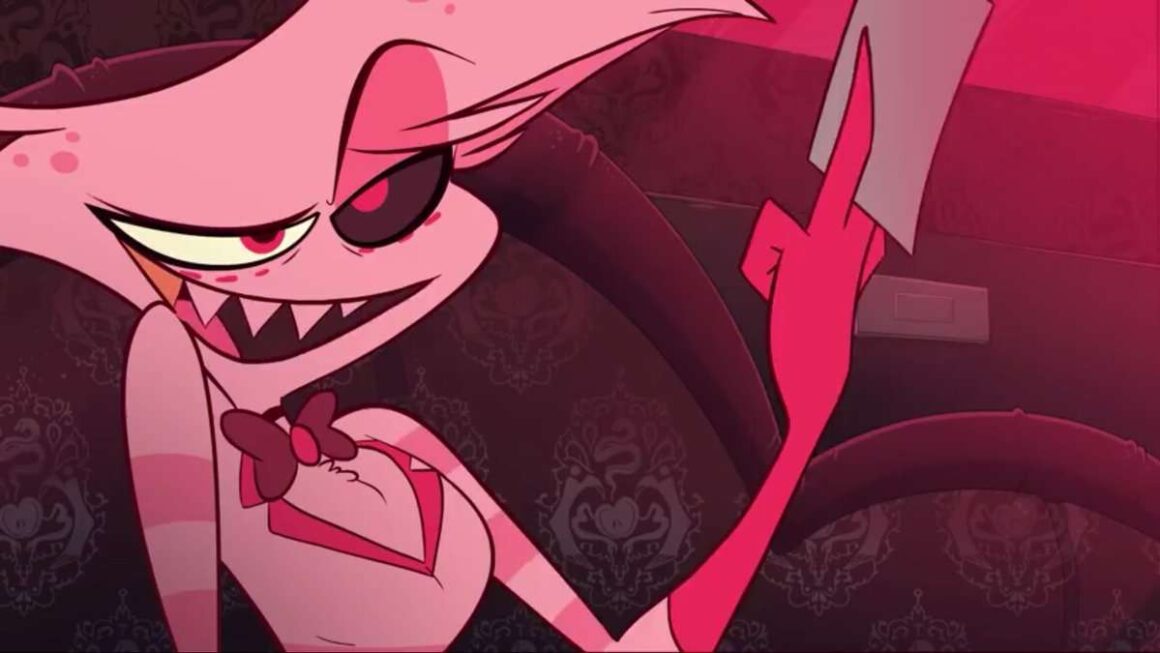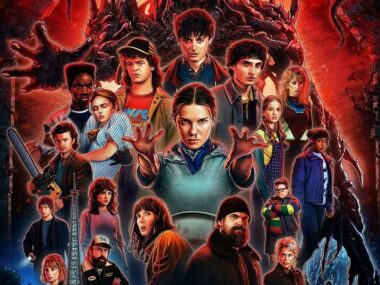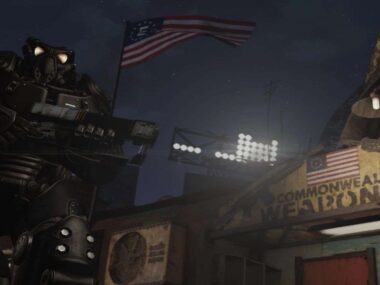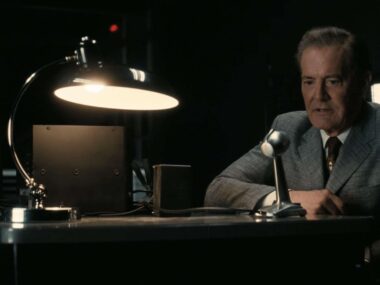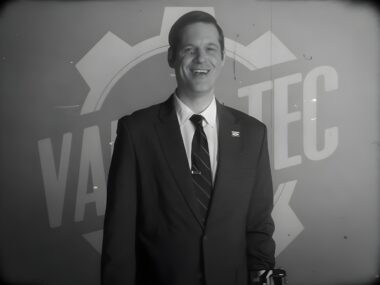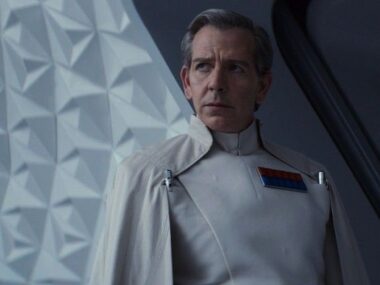Angel Dust is one of the most fascinating characters in Hazbin Hotel. His backstory is shrouded in mystery which is just what he wants. It’s how he protects himself.
Beneath the flamboyance is a man suffering from a vicious cycle of abuse and addiction. What does it take for someone who’s been hurt this deeply to believe they deserve better?
A Backstory Built on Survival
Angel Dust, born Anthony on April 1st in an Italian mob family in New York City, grew up surrounded by crime.
There’s a lot about Anthony’s past that hasn’t been revealed yet. He did have a fraternal twin sister named Molly. In season 2 of Hazbin Hotel, we learned that he murdered his father. Though for now, nobody knows why Anthony killed his dad or if that’s the sin that sent him to Hell. At some point, he became a drug addict, and died in his early to mid 30s in 1947 from an overdose.
How Valentino Got a Hold of Him
After entering Hell, Anthony embraced sex work and changed his name to Angel Dust.
It wasn’t long until he caught the attention of Valentino (Val), a powerful demon overlord. Val hired Angel to work as a porn star for his studio. The contract Angel signed gave Valentino complete ownership of his soul.
The Overlord is Angel’s pimp, boss, provider, and abuser. Val has no problem assaulting Angel in public. The relationship is a loop of manipulation, fear, and control that has Angel trapped.
Angel Dust’s Bad Habits Aren’t Flaws. They’re Shields.
Hazbin Hotel does something smart with Angel’s behavior: it refuses to sanitize it. He relapses into drugs. He lashes out. He keeps the people trying to help him at arm’s length. He goes right back to the same cycles he swears he wants to escape.
It’s messy. It’s frustrating. It’s painfully real.
With Angel Dust, we see how hard it can be to break the bad habits we form. Especially if these habits are the closest thing we have to a coping mechanism. Self sabotage becomes familiar. Detachment feels safer than hope. Even when he moves into Charlie’s hotel, he doesn’t fully accept that he has friends. He thinks he’s disposable. He thinks redemption is something other people earn.
That’s what makes his journey so relatable. You don’t break trauma patterns because someone offered you a hug. You break them because someone is still standing there the tenth time you slip.
Slowly, He Lets People In
What makes Angel’s arc powerful is that he doesn’t transform overnight. He doesn’t “heal” because the show needs a neat ending. His growth comes in small increments.
Season one shows us a character who isn’t ready to be saved. Charlie tries to give him a home. Husk looks out for him in his gruff way. Angel’s relationships with Cherri Bomb and Niffty hint at who he could be if he stopped running.
Even his move to the hotel isn’t to rebel against Valentino. It’s the first step toward reclaiming the right to choose something for himself.
By season two, Angel starts to change. Therapy is actually helping him. He says he enjoys it. He’s slower to shove people away. He’s recognizing the difference between being “used” and being “supported.” Which is huge for someone who spent decades being told that affection comes with a price tag.
Season two also digs deeper into his trauma. Valentino’s hold is still there. Vox manipulates him through hypnotic brainwashing. Angel becomes an unwitting informant. He gets hurt in new ways. The past doesn’t let him walk away that easily.
This is what makes his arc feel real. Progress doesn’t erase the damage. It just gives him new tools to face it.
The Heart of Angel Dust’s Arc
Angel Dust’s story isn’t about redemption in the moral sense. It’s about self worth. It’s the slow and brutal challenge of realizing you deserve better than the world you grew up in.
His entire arc asks the question: How do you learn to value yourself when every influence in your life taught you not to?
The show answers this through the people he meets and the choices he makes. Every time he accepts help. Every time he stands up to Val, even in small ways. Every time he lets himself trust a little more, he chips away at the lie that he’s unworthy.
Angel Dust is a look at how hard it is to break the cycles you mistake for safety. His story has relapse, setbacks, and ugly moments. It also has some small victories. Hazbin Hotel may be set in Hell, but Angel’s arc is one of the most human stories it tells. It isn’t about becoming perfect. It’s about daring to imagine he could become something better.
